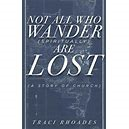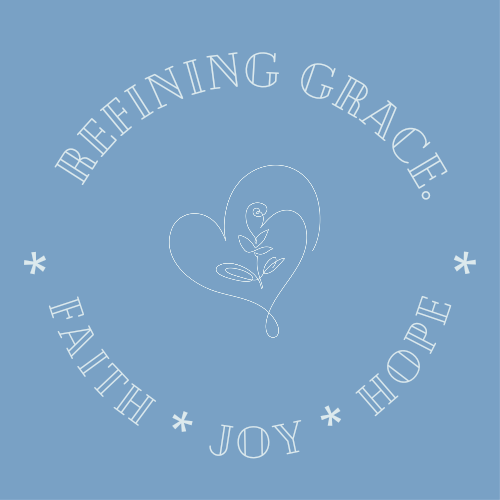I was attracted to the book title: Not All Who Wander (spiritually) Are Lost, but what really struck me was the sub-title (a story of church). I was raised in church – I mean that literally. My father was a pastor and if the church doors were open, you can bet I walked through them. Is it OK to bet on church?
My first encounter with the book title came from following the author, Traci Rhoades @tracesoffaith on Twitter where she posed question after curious question about faith, traditions, practices, beliefs – every one of them authentic, non-confrontational, and with no hint of pretense or debate. I admired the vast landscape of contributors to her conversation threads. I found a community of believers who share faith in the same Jesus I worship, but their practices (traditions) vary. I settled in to expand my view of church, feeling at home in the array of denominations because the basis of faith is belief that Jesus Christ was crucified, died on the cross and rose again three days later. On that foundation, this book tells the story of how we practice church and how we live out our faith that has come to look different, sound different, and operate different after 2000 years in the making.
“The primary lesson I learned is that most of the time church offers sweet fellowship,
and the majority of the people are there to worship Jesus and do good. Then there’s
the political side. Church as a business…Sometimes fellowship might feel broken, we’re
still under the lordship of Christ. Church family is still family, even when we don’t get
along.” – Chapter 2
I chose that quote because while it was basically the point of one chapter of the book, it’s how I like to think of all Christ followers. Our denominations might have different rituals, a variety of music, programs, frequency of communion, as Traci calls them, traditions, but that doesn’t change the object of our faith, Jesus Christ.
Throughout the book, Traci gives you a glimpse into her ‘religious’ experiences from the time she was a child, living down the street from a small country church whose doors were never locked. She was free to go through the doors and play church anytime. I can identify with that. Our church was unlocked most of the time and anyone was free to enter to sing or pray or just sit with their thoughts.
Further in the book Traci discusses how she and her husband have chosen where to put down roots for the church of their family worship. She talks about how they are raising their daughter to understand the depth of Christianity, while helping her develop knowledge outside their particular church home. While the narrative spans years, the dialog never gets boring and my attention didn’t wane.
I would describe this book as one you don’t want to put down once you start reading. Traci opens the curtain on her own convictions about church and the factors that grew her faith. Some came from pastors of her past, some came from practices within the denominations, but the ones that I found fascinating were those when she stepped outside her comfort zone and visited denominations that shared basic tenets of her faith, but tipped the scale on what she considered a ‘normal’ service for her.

Traci opens the curtain on her own convictions about church and the factors that grew her faith.
The richness of the book is enhanced by the personal life stories of individuals from diverse backgrounds and cultures.
The conversations feel like wandering Christians out for a stroll just talking over similarities and differences in the faith practice.
The richness of the book is enhanced by the personal life stories of individuals from diverse backgrounds and cultures. Every contributor brought their unique style and experiences to solidify the purpose of the book. It might be my personal impression that the purpose of the book was to show that believers of different faith traditions can live together in unity of spirit. That’s what made this book such a joy to read. I have always wondered why differences between denominations cause conflict and why people who love Jesus have to cause such grief in the church.
From the time I started following @tracesoffaith on Twitter and Facebook I was instantly drawn to the conversations because they had no agenda. It felt like wandering Christians out for a stroll just talking over similarities and differences in the faith practice. Were those posts the reference points for this book? I don’t know. What I do know is that this book, Not All Who Wander (spiritually) Are Lost is a valuable book about how believers in Christ can live in solidarity on Earth because one day they are all going to live in heaven together forever. We better figure this out.

Instagram: @ChurchPubIishingInc
Twitter: @ChurchPubInc @tracesoffaith
Facebook: Church Publishing Incorporated @tracesoffaith

Not All Who Wander (Spiritually) Are Lost. Publisher’s Weekly gave this book an early review, in which they said “She emphasizes that by listening and approaching others with an open heart, one can find new opportunities for experiencing Christ. Christians looking for community will relish this memoir of embracing differences.”
